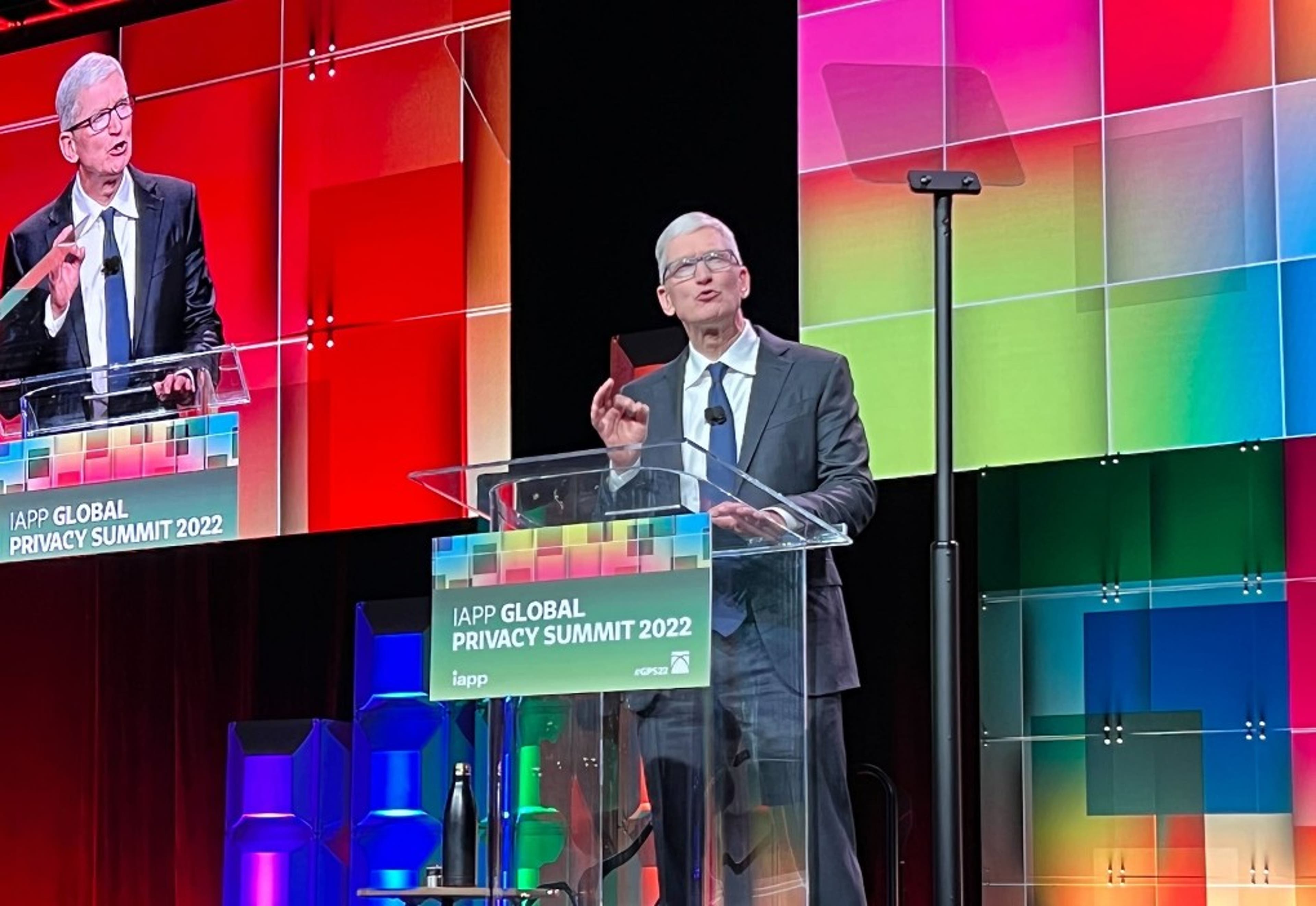Apple CEO Tim Cook joined the keynote stage Tuesday at the IAPP Global Privacy Summit 2022 in Washington, D.C., to once again emphasize his company's mantra that privacy is a fundamental human right. In the highly anticipated speech, which was livestreamed and covered by television outlets CNBC and Fox, Cook acknowledged that protecting privacy is not easy, but added, "it is one of the most essential battles of our time."
An issue of focus for Cook was concerns that some "policymakers are taking steps, in the name of competition, that would force Apple to let apps onto the iPhone that circumvent the App Store through a process called sideloading." Apple's App Store has long issued strict requirements on application makers to abide by security protocols to get into the store.
If sideloading is forced upon Apple by a competition law, Cook warned, "That means data-hungry companies would be able to avoid our privacy rules, and once again track our users against their will." He added that it would provide bad actors with a means to bypass "comprehensive security protections we've put in place."
Cook said they've seen similar issues arise "on other companies' devices" and cited, as an example, apps that appeared to be legitimate COVID-19 contact-tracing apps, "only to have their devices infected with ransomware."
He said those who back the proposed regulations "argue that no harm would be done by simply giving people a choice. But taking away a more secure option will leave users with less choice, not more. And when companies decide to leave the App Store because they want to exploit user data, it could put significant pressure on people to engage with alternate app stores. App stores where their privacy and security may not be protected."
Though Cook said his company believes in competition, he worries "if we are forced to let unvetted apps onto the iPhone, the unintended consequences will be profound."
During his speech, Cook provided other substantive comments, including that the company continues to call "for a strong comprehensive privacy law in the United States." Upon saying those words, the crowd in attendance applauded the remarks. For security, too, Cook reiterated that Apple continues to "stand up for encryption without backdoors — because we know that if you install a backdoor, anyone can use it."
Citing the work of late privacy scholar Alan Westin's seminal work, "Databanks in a Free Society," which turns 50 years old this year, Cook said, "Westin concluded that while the erosion of privacy was a legitimate fear, it was not an inevitable consequence of technology."
He also quoted from Westin's 1972 book: “What is collected, for what purposes, with whom information is shared, are all matters of policy choice, not technological determinism. ... Man cannot escape his social or moral responsibilities by murmuring feebly that ‘the machine made me do it.’”

